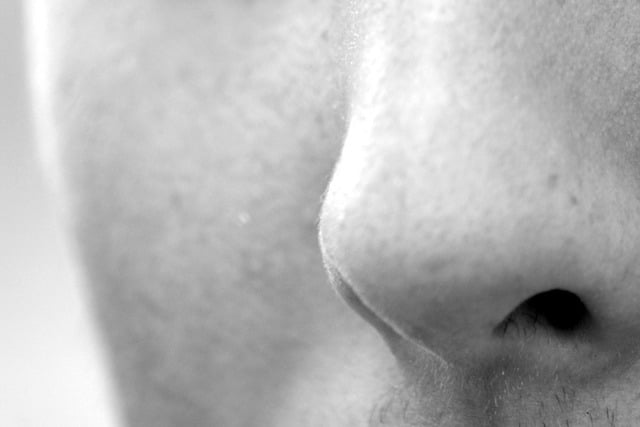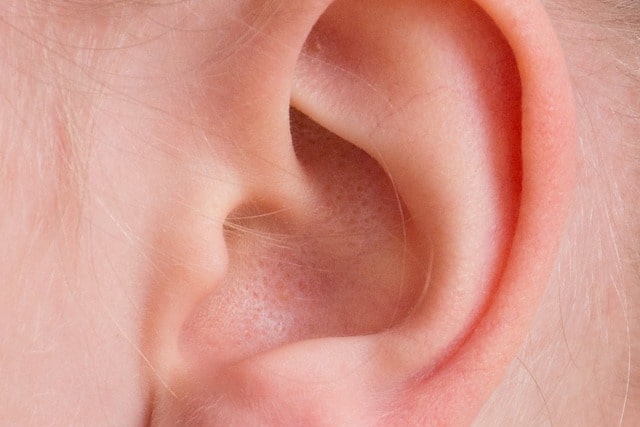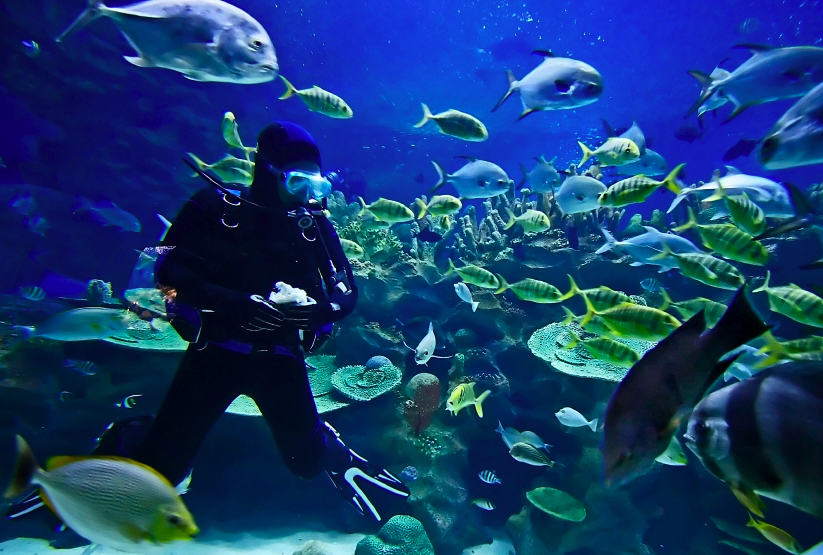Although we use our senses every day, we usually don’t tend to think about them much unless some illness, injury, or other problem causes us temporary or permanent problems. Most of us have five senses, maybe six, and they do what they do. However, scientists believe that there is much more to it than just five senses, and it’s amazing what they can do that you may never have known.
10. Some blind people can use sound waves for echolocation.

We've all heard of the comic book hero Daredevil, a blind man who has incredibly powerful hearing and can use it to see a perfect sonar picture of everything. In one situation, when it's raining, he sees so well with sonar that he gets a perfect picture of a woman's face. Many people have also heard that blind people have heightened hearing, and that if they use it correctly, it can make a big difference.
As with many things, there are levels of truth. Some blind people claim to have learned to use echolocation to incredible degrees, but it is not a popular method of orientation and mobility. One blind man in California uses this skill to ride a mountain bike and claims to be able to coach others. There was also a boy, now deceased, who claimed to have learned to play basketball while blind using echolocation. While the ability of most completely blind people to do this is somewhat questionable, since it is not widely practiced, perhaps many people will become mini daredevils in the future. This does not necessarily mean that they will ever be able to see someone’s face in the rain, but being able to effectively play basketball with sighted people and on a mountain bike while completely blind is still pretty cool.
9. If you use your sense of smell correctly, smell can become a powerful memory trigger.

One sense we often don’t think to use as a tool is the sense of smell. Sure, we might use it when figuring out whether food tastes good or not, but beyond that, we don’t think about it too much. The truth is, though, that smell has a really useful purpose that most people don’t know about. The sense of smell is considered the most powerful memory trigger of all, and if you can use it correctly, you can really boost your ability to remember important things.
There are also relatively simple practical ways to do this. If you are studying for a test, you can make sure that you use a chapstick or lip balm that has the same smell as the test. As long as your test allows you to use lip balm, you are not breaking any rules by using it to improve your memory. This also ties into context-dependent memory in general, meaning that if things are in the same context in many ways, you are more likely to remember them. You can increase the effectiveness of the smell trick by studying for the test in a room that is as similar as possible to the surroundings, table, and appearance to further increase the power of your memory.
8. In an anechoic chamber we can hear things we normally can't hear.

If you’ve ever wondered what it would be like to be without any visual or auditory feedback, there are experimental chambers you can go to do just that. In the past, the closest you could get was to go to a place like Mammoth Cave, deep underground, and have everyone turn off the lights for a while. Of course, even in that situation, no one can be completely silent, but anechoic chambers block out all sound, and some are designed to block out all light, too.
The tanks were primarily designed so that researchers could better understand the relationship between the feedback we hear or see and how our senses perceive it and transmit it to our brains. What’s interesting is that when people can’t hear, they typically either hear something that isn’t there or claim to hear their own lungs or other internal organs working. In special float tanks designed to also deprive them of sight, some people also report visual hallucinations that weren’t there either. Researchers believe this is likely because our brains have become so accustomed to feedback that when we don’t get it, we make something up instead.
7. You think new things taste like chicken.

You've almost certainly heard the phrase "it tastes like chicken" - in fact, there's a good chance you've said it yourself. Some philosophers have pondered this and wondered if it's because most things actually taste like chicken, or if chicken is somehow compared to many new things, even if they're not similar. With all sorts of diseases and other important things in mind, scientists have set out to answer this very important question.
Research has shown that the reason we do this is because chicken actually has a very neutral flavor and texture when it hasn’t been heavily seasoned or had anything special done to it. It’s also a food that almost every culture on Earth is familiar with, and it’s used as a blank slate to create all sorts of dishes. This means that when you say something tastes like chicken, what it really means is that you’re eating a new food that doesn’t have much of a flavor profile on its own and has likely been lightly seasoned to introduce you to it.
6. Everyone has their own unique scent, and it's a proven part of sexual attraction

When it comes to smell, most of us are certainly aware of how we smell and how others smell. We shower regularly and use deodorant or even perfume. Many people who are looking for romantic or sexual partners will go to great lengths in this regard, but when you are dating, there is more to smelling, and especially your scent, than just showering regularly and wearing the right cologne.
Scientific research has proven that everyone has their own unique scent, regardless of their cologne or shower habits, and that much of it is genetic. You may have even noticed that family members who visit your home, even if they all use different soaps, will have a similar scent that is unfamiliar to your home if they are rarely around. This scent may be linked to sexual attraction, although the chicken or the egg question can be difficult. In one scientific study, women were tested wearing both their partner's and a stranger's clothes without knowing which one it was. The women reported feeling good in their partner's clothes, but increased cortisol levels in the stranger's clothes. However, while this proves that a partner is attracted to their partner's scent, it does not necessarily mean that they were attracted to the scent in the first place.
5. People have different senses of danger

Many people like to talk about having some kind of sixth sense, or premonition, or something like that. Some people swear by it and claim that they simply know when danger is coming and can feel it. Others claim that this is a supernatural claim, and at the very least, it is difficult to prove. However, some researchers believe that there is more physiological evidence for it than most people realize.
The truth is that we may actually have some sort of innate sense of danger that we can even train ourselves to understand and use better, but there’s nothing particularly mystical about it. The thing is, we don’t actually have five senses. Some scientists say we have more than twenty, and others say we have more than thirty. Your body is constantly giving you all sorts of feedback that you’re not even aware of, and it sends it all to your amazing brain. Your brain can actually quickly put things together and tell you if something is abnormal. This will trigger physical alarms like goosebumps, a rush of adrenaline, and the like.
4. Infrasound may be a scientific explanation for some ghosts

Many people have been in a haunted house and reported feeling chills, presences, sounds, or all sorts of other strange phenomena. And of course, many people report these things outside of haunted houses – or at least outside of well-known houses. Belief in ghosts and apparitions goes back centuries, and it’s one of those things that’s hard to convince someone of if they don’t believe in it, and even harder to convince someone against it if they’ve had some real-life experiences.
However, while it is always possible that some people experience something otherworldly, there are also scientific theories that could explain at least some of the things people say they feel. The thing is, sounds known as infrasound, which can affect us but are outside the range of human hearing, could potentially be responsible for some of those weird sensations you get in old houses. An old, drafty house that is constantly settling could have all sorts of infrasound pockets, and they could trigger your fight, flight, or freeze response and make you think all sorts of things if you turn on the power of suggestion. Movies like Paranormal Activity have used infrasound in an attempt to make their film scarier, even if you don’t even realize what’s going on.
3. Alcohol does not warm us, but takes away heat from our body.

One belief many people have about alcohol is that it can actually warm our bodies, which is great, especially if we're lost in the cold. There are even paintings and cartoons of the famous St. Bernard rescue dog with a keg of cognac around his neck. Now, there were brave St. Bernards who long ago furry-walked their way through the Alps, helping lost travelers in the cold, but there's no evidence that they ever carried brandy, and little evidence that they ever carried a keg of any non-alcoholic liquid either. The whole keg idea is based on a painting by an Englishman who liked to draw animals.
The reason none of this was actually done was because drinking brandy or other alcohol will warm you up temporarily, but it's not really good for someone who needs emergency care. The reason for this is because alcohol sends blood to your extremities and warms you up quickly, but that rush is also quickly lost from your body.
2. Going too deep can disturb your senses and disorient you.

Any deep dive always presents some element of danger, as there are many things that can cause death or injury. At depth, almost any malfunction of your equipment can become a serious problem, and if you do not properly assess your oxygen, you may have trouble getting back in time - there is also the rare danger of being attacked by sea creatures. However, even experienced divers with perfectly functioning equipment can still get into trouble and get lost underwater. For this reason, most divers go with at least one partner.
The problem is something called nitrogen narcosis, which can affect your brain when you’re deep underwater. The deeper you go and the higher the pressure, the more concentrated the air you breathe from your tank. If you don’t regulate your breathing very carefully, it’s easy to get too much nitrogen. Scientists don’t fully understand this, as it’s not something that can be tested ethically, but they do think it slows down the cognitive process and can cause confusion. That’s why some very experienced divers can become so confused by their own senses that they end up not being able to tell which way is up and which is down, even by watching their bubbles – if only because the thought doesn’t occur to them.
1. When you're distracted, you may miss something right in front of you.

Most of us tend to value our ability to observe the world around us. While we may not all consider ourselves Sherlock Holmes, we like to believe that if something stupid or ridiculous were to happen right in front of us, we would notice it. We all know that magicians can use sleight of hand to make us miss something, but this usually involves doing something very quickly while placing something in front of what they don’t want us to see. Most of the time, they don’t actually show us what’s happening directly, although sometimes they do.
One of the most famous examples of this comes not from magicians, but from a video that psychologists like to use to teach students how easy it is to miss things and how we can be fooled. The video shows several people throwing a basketball back and forth. You are asked to watch the video and see how many times the people pass the ball. Most people are so busy counting the passes that they don’t notice a man in a gorilla suit walking through the image and stopping to hit his chest. This is called inattentional blindness and is a well-known phenomenon among psychologists.














Оставить Комментарий